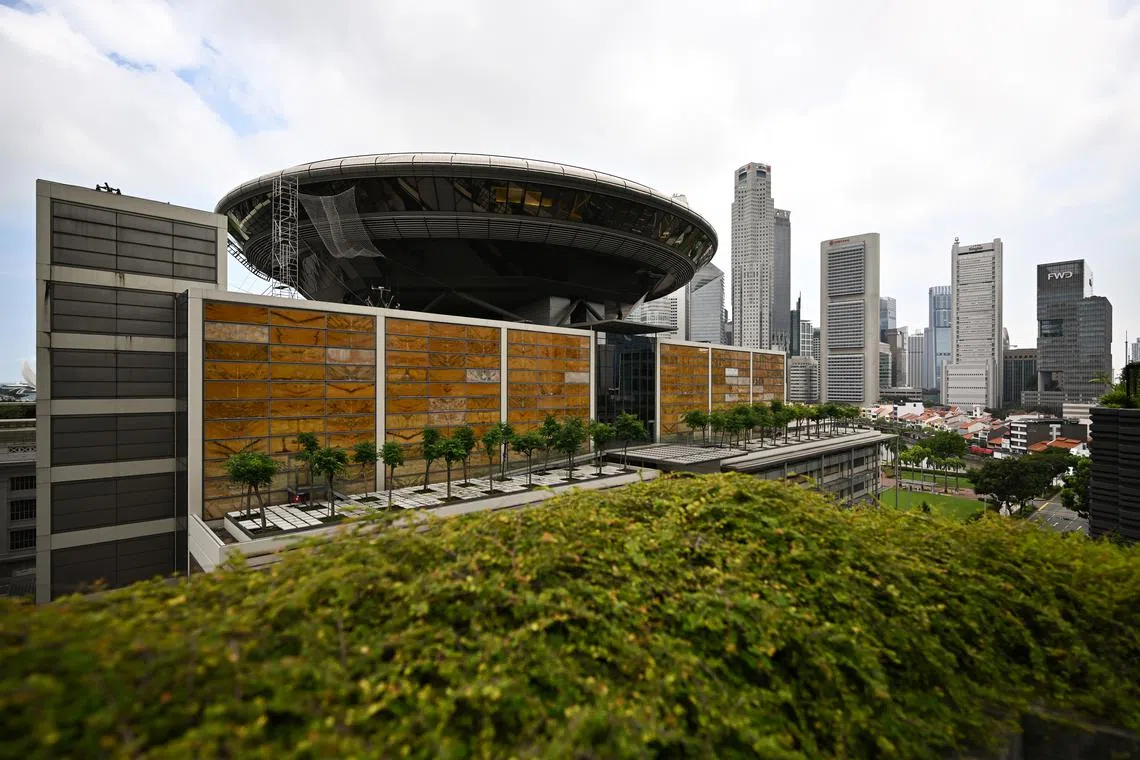High Court directs Law Society to apply for new tribunal to probe lawyer’s conduct
Sign up now: Get ST's newsletters delivered to your inbox

The rare judicial review application for the High Court’s move in 2022 came from a foreign worker.
PHOTO: ST FILE
Follow topic:
SINGAPORE - In the first case of its kind, the High Court annulled a decision of the Law Society to pursue a “watered down” charge against a lawyer before an existing disciplinary tribunal.
Justice Valerie Thean further directed the society, with its consent, to apply to the Chief Justice to revoke the appointment of the existing tribunal and name a new tribunal to probe the lawyer’s conduct in relation to the original charges.
The rare judicial review application for the High Court’s move in 2022 came from a foreign worker through a pro bono lawyer sourced by Transient Workers Count Too, a community non-governmental organisation.
A Law Society spokesman confirmed on Tuesday that the society had applied to the Chief Justice for the appointment of members to the disciplinary tribunal.
These developments were rooted in a landmark report in July 2020 by a disciplinary tribunal that was tasked by the Chief Justice to probe a twofold complaint by Bangladeshi worker Rana Masud against lawyer Joseph Chen.
Mr Chen was alleged to have failed to meet, speak to or contact Mr Masud, and to have delegated the accident injury suit to paralegals instead.
The Law Society initially had three charges and three alternative charges involving professional misconduct against Mr Chen.
But on Dec 13, 2019, the second day of a two-day hearing, the society told the tribunal to ignore the amended statement of case previously submitted and that the lawyer would plead guilty only to a single amended charge, based on the agreed statement of facts.
The then tribunal presided over by Senior Counsel Engelin Teh found this “troubling” and noted that the parties entered into a plea bargain deal that removed the original, more serious charges and watered down the remaining charge.
It added the the documentary evidence pointed to the need for more serious charges to be probed by the tribunal.
“The difference is significant. When the original third charge was amended as a result of the plea bargaining agreement, the resulting amended third charge further watered down the original third charge,” said the tribunal.
It noted that while the Law Society’s counsel had said the complainant, Mr Masud, had agreed to the amended statement of facts and to proceed with the plea bargain agreement, neither of the items was “explained or translated to the complainant during the hearing”.
The tribunal pointed to a past High Court case where Justice Thean had made clear that the Law Society had a duty to frame charges that reflected the complaint, and where this was not done, the society’s power was subject to judicial review.
It held that if it heard and probed the sole amended charge, which does not reflect the “gravamen” – or seriousness of the complaint – as filtered through the initial inquiry committee, its finding “would amount to an illegality and be erroneous and liable to be set aside”.
In a groundbreaking move, the tribunal declined to make a finding in the case and ordered the case be referred to the High Court for judicial review.
“The present case is yet another example as to why members of the public might have concerns whether the legal profession should be entitled to regulate (itself),” added the tribunal.
Mr Masud, in a translated response, said last week: “I never expected that I would have to take the Law Society to court, but knew it was the right thing to do. I could not have done it without my lawyer, Jamal Siddique, and I am very grateful for his support.”


